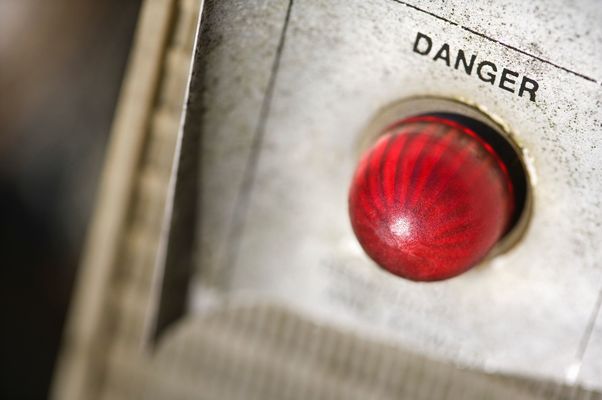For the majority of us, the main occupational hazards at work are getting a papercut or spilling hot coffee all over the desk. But workplace fatalities and injuries remain a real risk in some industries – the International Labour Organization (ILO) estimates that there are 2.3 million workplace fatalities and 340 million injuries every year.
In the UK alone, the Health and Safety Executive (HSE) reported 1.6 million work-related ill health cases in 2020, and 38.8 million working days lost due to work-related ill health and non-fatal workplace injuries. But which are the most dangerous jobs in the UK?
Commercial fishing
According to the HSE, commercial fishing is one of the UK’s most dangerous occupations. Fishermen are six times more likely to die than workers in other sectors – in 2018 the industry suffered 62 fatalities per 100,000 with workers falling overboard and drowning.
Statistics were reported after a spate of accidents that took the lives of fishermen off the North East coast of England, with calls for a change in culture. Following legislation by the ILO in 2017, UK law changes came into effect in 2019 to improve safety and wellbeing for those working on fishing vessels and made it compulsory for personal flotation devices to be worn on board.
“Fishing is still the most dangerous profession in the UK today and, whilst we are seeing improvements in safety, tragically there were seven lives lost in the industry last year, all of which could have been prevented,” said David Fenner, Head of Fishing Safety at the Maritime and Coastguard Agency.
Waste and recycling
Perhaps one of the more surprising industries to be included in this list is the waste and recycling industry. Around 5000 workers in the industry suffer from ill-health from the workplace, with five deaths last year.
The causes of fatalities were contact with moving machinery at 30%, being hit by a moving vehicle at 30%, and being struck by a moving or falling object at 21%. As the majority of accidents occur during waste collection and when vehicles are moving, risk management procedures, such as eliminating reversing where possible and timing collections to avoid busy periods where pedestrians will be present, are used.
Construction workers
Unsurprisingly, construction is also one of the most dangerous industries in the UK, with 40 workers suffering fatal injuries in 2020. Around 81,000 workers suffered from work-related ill health last year, with 57% being musculoskeletal disorders, and 26% stress, depression, or anxiety.
The main cause of deaths in the industry are falling from a height at 47%, being trapped by something collapsing or overturning at 16%, being struck by a moving or falling object at 12%, being struck by a moving vehicle at 10%, and contact with electricity at 4%.
Oil or gas rigger
Working in the oil and gas industry comes with innate dangers, particularly offshore. Upstream oil and gas has one of the highest severe injury rates in the world, with the potential for explosions, chemical leaks, machinery malfunctions, fires, and falling equipment.
Common injuries in the oil and gas industry include injury from heavy machinery operation including trauma or crush injuries, dismemberment, fractures, severe burns, explosions, spinal cord injury, paralysis, and chemical exposure. In 2019, there were no fatal injuries, but there were 338 reported injuries per 100,000, as well as 218 dangerous incidents and 126 hydrocarbon releases.
Deep sea divers
There’s a reason why deep-sea divers are paid so highly — it is an isolating and dangerous career that requires divers to be locked up in small decompression chambers for up to 28 days. Not only extremely claustrophobic, the hazards stretch far beyond the obvious risks of drowning and equipment malfunction.
Barotrauma occurs when tissue near pockets of air in your body is damaged, including sinuses, dental roots, lungs, and ears. It can even rupture your ear drums or lungs. Decompression sickness is caused by ascending too quickly and nitrogen bubbles form in the body, causing damage to nerves and tissue, which can be fatal or cause paralysis. Another risk is nitrogen narcosis, which is a result of a build-up of nitrogen in the brain. This can cause delirium and has been known to prompt divers to remove their regulator or leave them unable to read their gauge and instruments.
Photo courtesy of Canva.com












